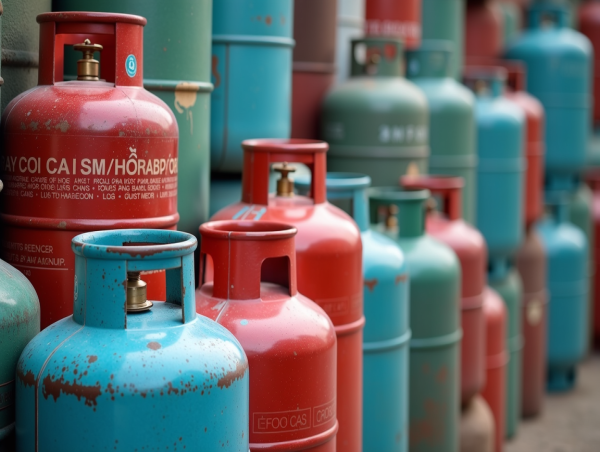Tariff announcements are causing ripples throughout global oil markets, leading to increased focus on potential reciprocal actions and their fundamental effects across the entire oil-to-olefins value chain.
Alkenes, or olefins, are hydrocarbons characterized by the presence of one or more carbon-carbon double bonds.
These compounds serve as essential precursors in the manufacturing of a wide range of products, such as plastics and detergents.
The narrowing trade dispute between the US and China has highlighted natural gas liquids (NGLs) as a significant point of contention, revealing the substantial interconnectedness of both countries in the NGL, naphtha, and olefins markets, according to Rystad Energy.
“A steep 125% tariff on US propane would severely impact China’s propane dehydrogenation (PDH) sector, which is highly dependent on this cost-effective feedstock,” Manish Sejwal, vice president, commodity markets analysis at Rystad Energy said in an emailed commentary.
Rystad Energy analysis indicates a potential 10–20% decrease in utilization, leading to a tighter propylene market and a brief period of benefit for Korean PDH and naphtha crackers.
China’s propylene output and reliance on US propane
China’s propylene production via propane dehydrogenation (PDH) has surged over 300% in the last five years, exceeding 21 million tonnes.
This dramatic increase is attributed to the availability of inexpensive propane from the US, a consequence of the US shale gas revolution, particularly in the Permian Basin.
Limited US domestic propane demand has positioned the nation as the leading global exporter.
Notably, in 2024, the US supplied almost 60% of China’s total propane imports.
US LPG exports maintained a robust level in April. Although shipments to Asia saw a minor decrease, specifically to China, this was offset by higher exports to other areas.
Despite potential changes in trade patterns, the substantial volume of US LPG exports makes a complete diversion from China unlikely.
If China enforces a 125% tariff on US propane, it would have severe consequences for its PDH industry, which has already been struggling with poor margins due to high feedstock costs and limited alternative propane sources.
“Such a move would lead to propane oversupply in the US, putting downward pressure on US LPG prices,” Sejwal said.
China’s PDH plant operations could be significantly impacted by the tariff, potentially leading to a 10-20% decrease in utilisation rates due to a shortage of alternative propane suppliers, as projected by Rystad Energy.
This reduction could lower propane demand by approximately 120,000 bpd with a 10% drop, and around 210,000 bpd with a 20% drop.
Improved margins for Asia
Consequently, tighter propylene fundamentals are anticipated, which may re-balance the oversupplied propylene market and temporarily improve margins for Asian steam crackers and PDH operators outside of China.
Sejwal noted;
This would provide a small window of opportunity for Korean PDH operators and naphtha crackers in Asia to increase the run-rates.
However, elevated ethylene supply and a subdued demand outlook for derivatives, influenced by tariffs, are expected to limit increases in cracker operating rates and consequently restrain the growth in naphtha demand from these units.
Naphtha market
Rystad Energy expects naphtha demand in China to increase by around 250,000 bpd largely driven by new non-integrated capacity addition in China.
Refineries are expected to maintain current production levels of petrochemical feedstock in the near term.
This is because the ongoing shift towards electric and gas-powered vehicles in China is projected to increase the availability of naphtha.
The resulting surplus naphtha is likely to be redirected to the petrochemical industry, specifically for steam cracking and aromatics production.
Sejwal added:
Furthermore, the weaker product cracks outlook would disincentivize the refiners to increase runs.
Recent strengthening of naphtha cracks in Asia is attributable to limited imports from the West of Suez and the commencement of operations of a new naphtha-dependent cracker in China during April, according to Rystad.
Western naphtha supply is decreasing due to European, UK, and Middle Eastern refinery shutdowns, compounded by maintenance at the key exporter Skikda.
Rystad Energy anticipates strong Asian naphtha cracks this year, exceeding last year’s levels.
This strength in cracks is attributed to reduced Western naphtha supply, stemming from European refinery shutdowns, aligning with increased demand from new Chinese ethylene crackers that were not integrated.
Consequently, the region’s reliance on imported naphtha is expected to grow, the energy intelligence company said.
The post US-China tariff dispute threatens propane market, impacts olefins supply appeared first on Invezz





